第6章 SCENE I.(1)
Another part of the island. Enter ALONSO, SEBASTIAN, ANTONIO, GONZALO, ADRIAN, FRANCISCO, and others GONZALO Beseech you, sir, be merry; you have cause, So have we all, of joy; for our escape Is much beyond our loss. Our hint of woe Is common; every day some sailor's wife, The masters of some merchant and the merchant Have just our theme of woe; but for the miracle, I mean our preservation, few in millions Can speak like us: then wisely, good sir, weigh Our sorrow with our comfort. ALONSO Prithee, peace. SEBASTIAN He receives comfort like cold porridge. ANTONIO The visitor will not give him o'er so. SEBASTIAN Look he's winding up the watch of his wit; by and by it will strike. GONZALO Sir,-- SEBASTIAN One: tell. GONZALO When every grief is entertain'd that's offer'd, Comes to the entertainer-- SEBASTIAN A dollar. GONZALO Dolour comes to him, indeed: you have spoken truer than you purposed. SEBASTIAN You have taken it wiselier than I meant you should. GONZALO Therefore, my lord,-- ANTONIO Fie, what a spendthrift is he of his tongue! ALONSO I prithee, spare. GONZALO Well, I have done: but yet,-- SEBASTIAN He will be talking. ANTONIO Which, of he or Adrian, for a good wager, first begins to crow? SEBASTIAN The old cock. ANTONIO The cockerel. SEBASTIAN Done. The wager? ANTONIO A laughter. SEBASTIAN A match! ADRIAN Though this island seem to be desert,-- SEBASTIAN Ha, ha, ha! So, you're paid. ADRIAN Uninhabitable and almost inaccessible,-- SEBASTIAN Yet,-- ADRIAN Yet,-- ANTONIO He could not miss't. ADRIAN It must needs be of subtle, tender and delicate temperance. ANTONIO Temperance was a delicate wench. SEBASTIAN Ay, and a subtle; as he most learnedly delivered. ADRIAN The air breathes upon us here most sweetly. SEBASTIAN As if it had lungs and rotten ones. ANTONIO Or as 'twere perfumed by a fen. GONZALO Here is everything advantageous to life. ANTONIO True; save means to live. SEBASTIAN Of that there's none, or little. GONZALO How lush and lusty the grass looks! how green! ANTONIO The ground indeed is tawny. SEBASTIAN With an eye of green in't. ANTONIO He misses not much. SEBASTIAN No; he doth but mistake the truth totally. GONZALO But the rarity of it is,--which is indeed almost beyond credit,-- SEBASTIAN As many vouched rarities are. GONZALO That our garments, being, as they were, drenched in the sea, hold notwithstanding their freshness and glosses, being rather new-dyed than stained with salt water. ANTONIO If but one of his pockets could speak, would it not say he lies? SEBASTIAN Ay, or very falsely pocket up his report GONZALO Methinks our garments are now as fresh as when we put them on first in Afric, at the marriage of the king's fair daughter Claribel to the King of Tunis. SEBASTIAN 'Twas a sweet marriage, and we prosper well in our return. ADRIAN Tunis was never graced before with such a paragon to their queen. GONZALO Not since widow Dido's time. ANTONIO Widow! a pox o' that! How came that widow in? widow Dido! SEBASTIAN What if he had said 'widower AEneas' too?
Good Lord, how you take it! ADRIAN 'Widow Dido' said you? you make me study of that: she was of Carthage, not of Tunis. GONZALO This Tunis, sir, was Carthage. ADRIAN Carthage? GONZALO I assure you, Carthage. SEBASTIAN His word is more than the miraculous harp; he hath raised the wall and houses too. ANTONIO What impossible matter will he make easy next? SEBASTIAN I think he will carry this island home in his pocket and give it his son for an apple. ANTONIO And, sowing the kernels of it in the sea, bring forth more islands. GONZALO Ay. ANTONIO Why, in good time. GONZALO Sir, we were talking that our garments seem now as fresh as when we were at Tunis at the marriage of your daughter, who is now queen. ANTONIO And the rarest that e'er came there. SEBASTIAN Bate, I beseech you, widow Dido. ANTONIO O, widow Dido! ay, widow Dido. GONZALO Is not, sir, my doublet as fresh as the first day I wore it? I mean, in a sort. ANTONIO That sort was well fished for. GONZALO When I wore it at your daughter's marriage? ALONSO You cram these words into mine ears against The stomach of my sense. Would I had never Married my daughter there! for, coming thence, My son is lost and, in my rate, she too, Who is so far from Italy removed I ne'er again shall see her. O thou mine heir Of Naples and of Milan, what strange fish Hath made his meal on thee? FRANCISCO Sir, he may live:
I saw him beat the surges under him, And ride upon their backs; he trod the water, Whose enmity he flung aside, and breasted The surge most swoln that met him; his bold head 'Bove the contentious waves he kept, and oar'd Himself with his good arms in lusty stroke To the shore, that o'er his wave-worn basis bow'd, As stooping to relieve him: I not doubt He came alive to land. ALONSO No, no, he's gone. SEBASTIAN Sir, you may thank yourself for this great loss, That would not bless our Europe with your daughter, But rather lose her to an African;Where she at least is banish'd from your eye, Who hath cause to wet the grief on't. ALONSO Prithee, peace. SEBASTIAN You were kneel'd to and importuned otherwise By all of us, and the fair soul herself Weigh'd between loathness and obedience, at Which end o' the beam should bow. We have lost your son, I fear, for ever: Milan and Naples have More widows in them of this business' making Than we bring men to comfort them: